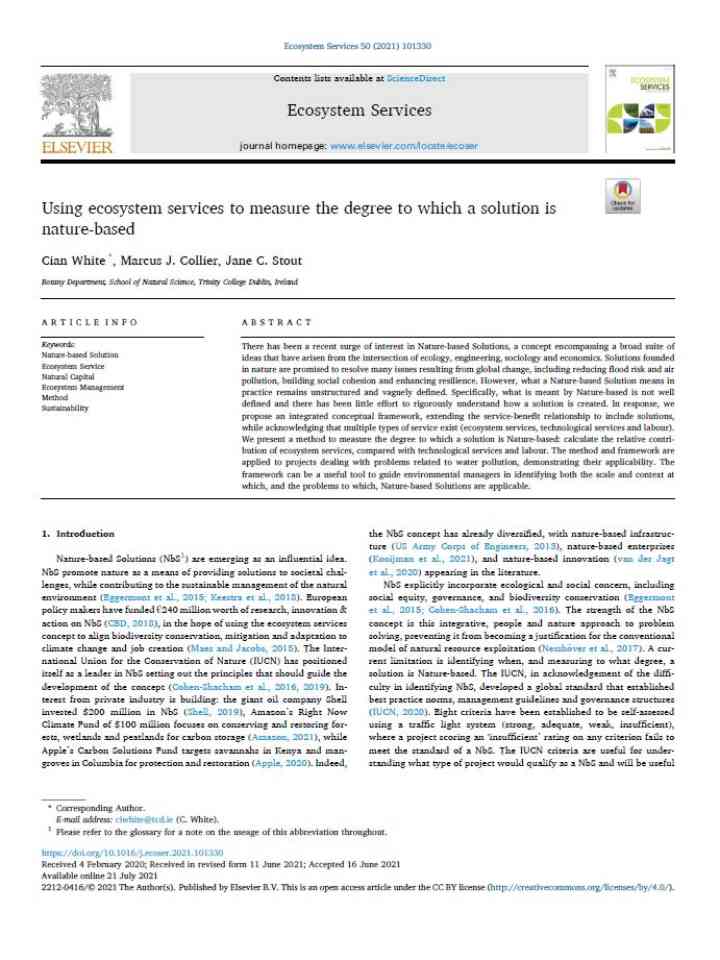Using ecosystem services to measure the degree to which a solution is nature-based
This article proposes an integrated conceptual framework for evaluating nature-based solutions, extending the service-benefit relationship to include solutions, while acknowledging that multiple types of service exist (ecosystem services, technological services and labour). There has been a recent surge of interest in Nature-based Solutions, a concept encompassing a broad suite of ideas that have arisen from the intersection of ecology, engineering, sociology and economics. Solutions founded in nature are promised to resolve many issues resulting from global change, including reducing flood risk and air pollution, building social cohesion and enhancing resilience. However, what a Nature-based Solution means in practice remains unstructured and vaguely defined. Specifically, what is meant by Nature-based is not well defined and there has been little effort to rigorously understand how a solution is created.
The authors present a method to measure the degree to which a solution is Nature-based: calculate the relative contribution of ecosystem services, compared with technological services and labour. The method and framework are applied to projects dealing with problems related to water pollution, demonstrating their applicability. The framework can be a useful tool to guide environmental managers in identifying both the scale and context at which, and the problems to which, Nature-based Solutions are applicable.
Explore further
